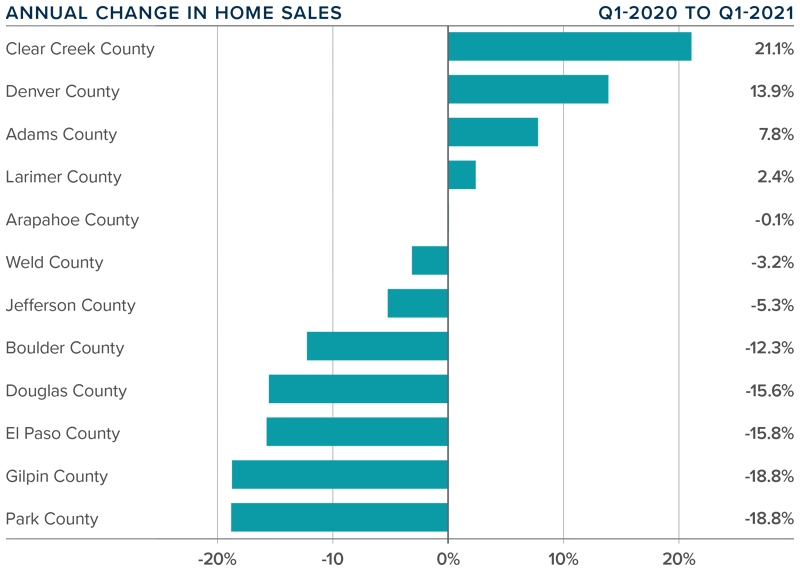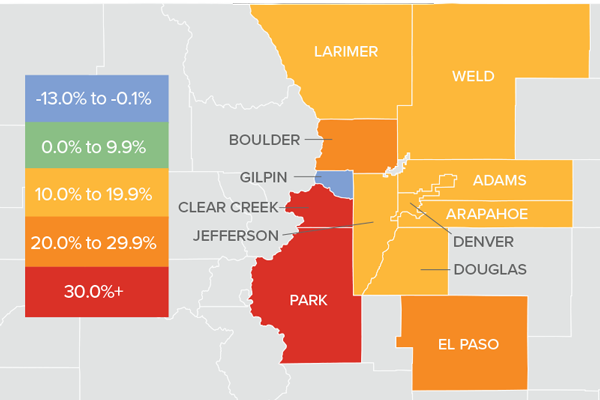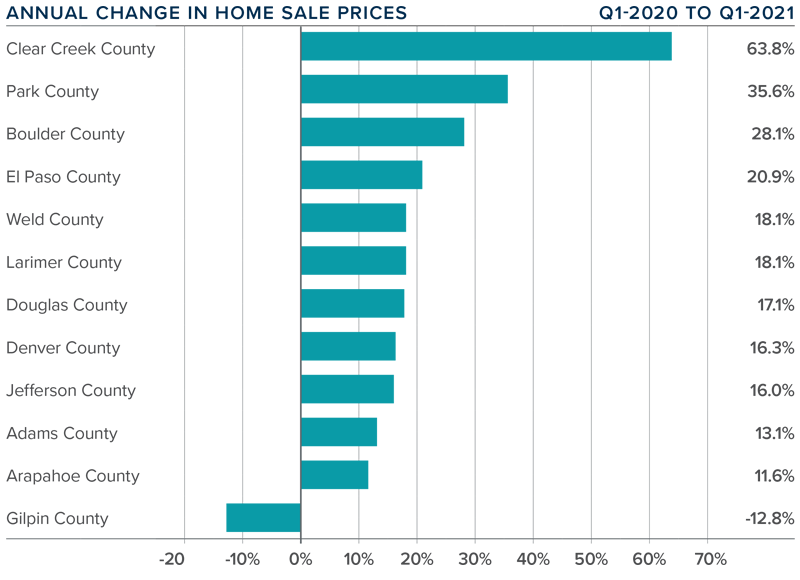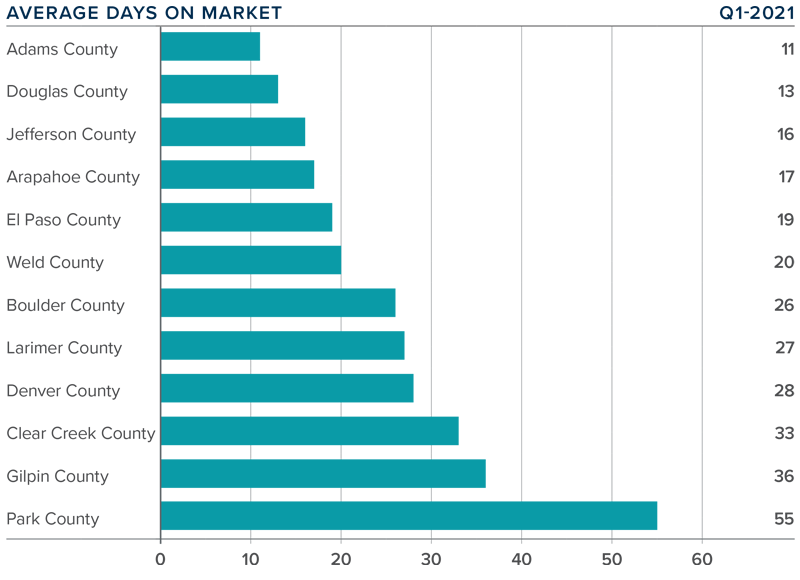Friday Fun Facts – The Average American Moves 12 Times in Their Life

According to the U.S. Census Bureau, the average American moves approximately 11.7 times throughout their lifetime. However, this number varies widely depending on factors such as age, income, and marital status.
Young adults between the ages of 18 and 34 move much more frequently than older adults. Folks between 18 and 34 have an average of 3.3 moves under their belts. In contrast, adults aged 65 and over move much less frequently, with an average of 2.4 moves throughout their lifetime.
Times have changed. While Americans used to move for job opportunities, most people nowadays choose to move for personal reasons. Being closer to families and seeking a better quality of life have become major driving forces behind American relocations.
Of course, the COVID-19 pandemic has also had a significant impact on American mobility. Many people took the chance to re-evaluate their living situations in light of remote work and other changes in the workplace. After all, if you’re going to work from home, why not make your home someplace nice?
Sources: U.S. Census Bureau and MovingFeedback.com
What Gives?


“I thought the market was cooling off, so why are prices still going up?”
This is a frequent question we hear from our clients.
They are understandably confused by the fact that average prices have continued to rise at a rapid pace even though sales activity is slower than what it was 6 months ago.
Bottom line, they want to know why prices are up along the Front Range anywhere from 12% to 17% compared to last year.
Firstly, we don’t expect this pace of price appreciation to continue. What we foresee is price growth going back to the long term average of 5% to 6% per year.
The reason why we still see double-digit growth comes down to two words. Supply and Demand.
Supply, while higher than a year ago, is still relatively low.
Also demand, while lower than a year ago, is still relatively high.
The market is still healthy, just not as frantic as it was.
Properties are still selling, but bidding wars and multiple offers have mostly gone away.
Sellers remain in a strong position, but they face more competition than before.
War and Interest Rates

Our clients are curious to know what the conflict in the Ukraine will mean for mortgage rates.
The short answer is down in the near term and up in the long term.
Generally speaking, economic and political uncertainty drive people to invest in bonds rather than stocks, which puts downward pressure on interest rates.
So, in the near term, the conflict in the Ukraine will push rates down slightly. We have already seen this happen as 30-year rates have dipped in the last few days.
The conflict is likely to push oil prices up which means higher gasoline prices. This will cause upward pressure on inflation, which ultimately causes upward pressure on interest rates.
So, the longer the war lasts in Europe, the more likely it is to push interest rates even higher.
Words Matter

A common phrase that is being used right now to describe the market is ‘no inventory.’
‘There’s no inventory’ is said frequently among those inside and outside of the real estate industry.
The problem with this phrase is that it is untrue.
There is inventory. Meaning, there are a significant number of new listings hitting the market.
However, there is low standing inventory. Meaning, the listings that do hit the market don’t stick around for very long before they are purchased.
Standing inventory, which is the number of active properties on the market, is down roughly 70% along the Front Range.
However, the number of new listings coming on the market is essentially:
- Double compared to December 2020
- Only 20% to 25% less than this time of year in 2017, 2018, and 2019
So, there is inventory available, it just sells quickly because demand is historically high right now.
Q1 2021 Colorado Real Estate Market Update

The following analysis of the Metro Denver & Northern Colorado real estate market is provided by Windermere Real Estate Chief Economist Matthew Gardner. We hope that this information may assist you with making better-informed real estate decisions. For further information about the housing market in your area, please don’t hesitate to contact your Windermere Real Estate agent.
REGIONAL ECONOMIC OVERVIEW
Following the decline in employment last winter, Colorado has started to add jobs back into its economy. The latest data shows that the state has now recovered more than 219,000 of the 376,000+ jobs that were lost due to COVID-19. This is certainly positive, but there is a long way to go to get back to pre-pandemic employment levels. Denver and Fort Collins continue to have the greatest improvement in employment, but all markets show job levels well below pre-pandemic levels. With total employment levels rising, the unemployment rate stands at 6.6%, down from the pandemic peak of 12.1%. Regionally, unemployment levels range from a low of 5.6% in Fort Collins and Boulder to a high of 6.7% in Greeley. COVID-19 infection rates have started to increase again, and this has the potential to negatively impact the job market. I am hopeful that the state will not be forced to pull back reopening, but this is certainly not assured.
COLORADO HOME SALES
❱ 2021 started off on a bit of a sour note, with total sales down 1.2% compared to the same period in 2020. Sales were 29.2% lower than in the final quarter of 2020 as 8,645 homes sold.
❱ Sales were higher in four of the counties contained in this report, were essentially flat in one, and dropped in seven. It was pleasing to see significant sales growth in the large counties of Denver and Adams.
❱ Another positive was that pending sales, which are an indicator of future closings, were 4.8% higher than in the fourth quarter of 2020 and 5% higher than a year ago.
❱ The disappointing number of home sales overall can primarily be attributed to the woeful lack of inventory. Listings in the quarter were down more than 61% year over year and were 40.6% lower than in the fourth quarter of 2020.
COLORADO HOME PRICES
❱ Prices continue to appreciate at a very rapid pace, with the average sale price up 16.5% year over year, to an average of $556,100. Home prices were also 4.4% higher than in the fourth quarter of 2020.
❱ Buyers appear to be out in force, and this demand—in concert with very low levels of inventory—continues to heat the market.
❱ Prices rose over last year across all markets covered by this report, with the exception of the very small Gilpin County. All other counties saw sizeable gains and the trend of double-digit price growth continued unabated.
❱ Affordability levels are becoming a greater concern as prices rise at a far faster pace than wages. Even though mortgage rates have started to rise, they haven’t yet reached the level needed to take some of the heat out of the market.
DAYS ON MARKET
❱ The average time it took to sell a home in the markets contained in this report dropped 20 days compared to the first quarter of 2020.
❱ The amount of time it took to sell a home dropped in every county contained in this report compared to the fourth quarter of 2020.
❱ It took an average of 25 days to sell a home in the region, down one day from the fourth quarter of 2020.
❱ The Colorado housing market remains very tight, as demonstrated by the fact that it took less than a month for homes to sell in all but two counties.
CONCLUSIONS
This speedometer reflects the state of the region’s real estate market using housing inventory, price gains, home sales, interest rates, and larger economic factors.
The relatively low level of home sales is not a surprise given how few choices there are for buyers. Sellers are certainly benefitting from strong demand, as demonstrated by the significant price growth. I maintain my belief that there will be an increase in inventory as we move through the year, but it is highly unlikely that we will see a balanced market in 2021.
Given these factors, I am moving the needle a little more in favor of sellers, as demand is likely to continue to exceed supply.
ABOUT MATTHEW GARDNER
As Chief Economist for Windermere Real Estate, Matthew Gardner is responsible for analyzing and interpreting economic data and its impact on the real estate market on both a local and national level. Matthew has over 30 years of professional experience both in the U.S. and U.K.
In addition to his day-to-day responsibilities, Matthew sits on the Washington State Governors Council of Economic Advisors; chairs the Board of Trustees at the Washington Center for Real Estate Research at the University of Washington; and is an Advisory Board Member at the Runstad Center for Real Estate Studies at the University of Washington where he also lectures in real estate economics.
Economic Update with Matthew Gardner


Exclusive Invitation!!!
Tune in on Tuesday, October 6, 2020 at 9:00am to meet with Matthew Gardner, Windermere Real Estate’s Chief Economist LIVE and get your chance to ask him questions. He’ll be discussing the housing market, employment and the effects of COVID-19 on the local and national economy.
As one of the only real estate companies in the US that has a Chief Economist on staff, we have exclusive insights into the housing market, economy and government happenings. This is a one of a kind event for clients and friends of Windermere Real Estate in Colorado.
To sign up, please contact your Windermere Agent or message us to get the link. Seating is limited in digital meeting room so get your seat!
(If you can’t attend live, you can register to automatically get the recording.)
Matthew Gardner’s 2020 Real Estate Forecast

It’s that time of year when Windermere’s Chief Economist Matthew Gardner dusts off his crystal ball and peers into the future to give us his predictions for the 2020 economy and housing market.
Our Favorite Real Estate Podcasts


Podcasts are a growing medium as listeners search for new sources of entertainment and information. In 2018 there were about 550,000 podcasts, in 2019 there are more than 750,000. Listeners are growing too, an estimated 20 million more people in the U.S. are listening to podcasts this year as compared to2018.
This growth in audio entertainment inspired us to pull together a few of our favorite real estate podcasts. Whether you’re interested in investing in real estate, looking to make a move to a new home, or just want to know what’s happening in the market, here are our recommendations:
For Investors:
The Millennial Real Estate Investor
Find your niches in Real Estate with Dan Mackin and Ben Welch, who host experts with stories about their investing successes and challenges. Learn from the experienced guests on this show the many ways to get into investing and succeed at it.
Listen to Millennial Real Estate Investor wherever you get your podcasts (Icon linked):
Cash Flow Connection
If you’re drawn to the commercial side of real estate, Cash Flow Connections with host, Hunter Thompson, is an informative podcast that interviews leading investors, sponsors and managers. Learn about all the aspects of commercial real estate from all viewpoints to find the right fit for you.
Windermere’s Chief Economist, Matthew Gardner, was just interviewed about the state of the real estate market, and what to expect in the next recession (hint: it won’t be driven by housing). You can listen to that episode here.
Listen to Cash Flow Connection wherever you get your podcasts:
For Those About to Move
Windermere Home and Wealth
Host Brian Bushlach interviews business owners, local guides, and Windermere agents in each episode about different areas throughout the Western U.S. and what they have to offer to those who live or visit there. Learn about what’s attracting newcomers to the area, and what the local real estate market looks like. This podcast is sure to stir your wanderlust.
Listen to Windermere Home and Wealth wherever you get your podcasts:
Finding Home with 106.1 KISS FM
Join first-time home buyers, and radio personalities, Anthony and Carla Marie from 106.1 KISS FM, as they walk through the home buying journey with their Windermere agents. This podcast is both entertaining and informative as they ask the questions you’ve always wanted answers to. With their knowledgeable real estate agents by their sides, they’re taking you along as they get approved, look for houses, and even put an offer on a home.
Listen to Finding Home on iHeartRadio:
Stay Informed
Housing Developments
Hosted by National Association of Home Builders CEO Jerry Howard and Chief Lobbyist Jim Tobin, this podcast covers updates in the housing market and building industry across the nation. Learn from experts in the field about recent laws and the news of the industry.
Listen to Housing Developments wherever you get your podcasts:
Real Estate News with Kathy Fettke
This podcast is aimed at real estate investors who want to stay curren on the latest real estate news. Presented in bite sized episodes, listeners can learn about laws, regulations, and economic events that affect real estate and their local market.
Listen wherever you get your podcasts:
 Facebook
Facebook
 X
X
 Pinterest
Pinterest
 Copy Link
Copy Link










